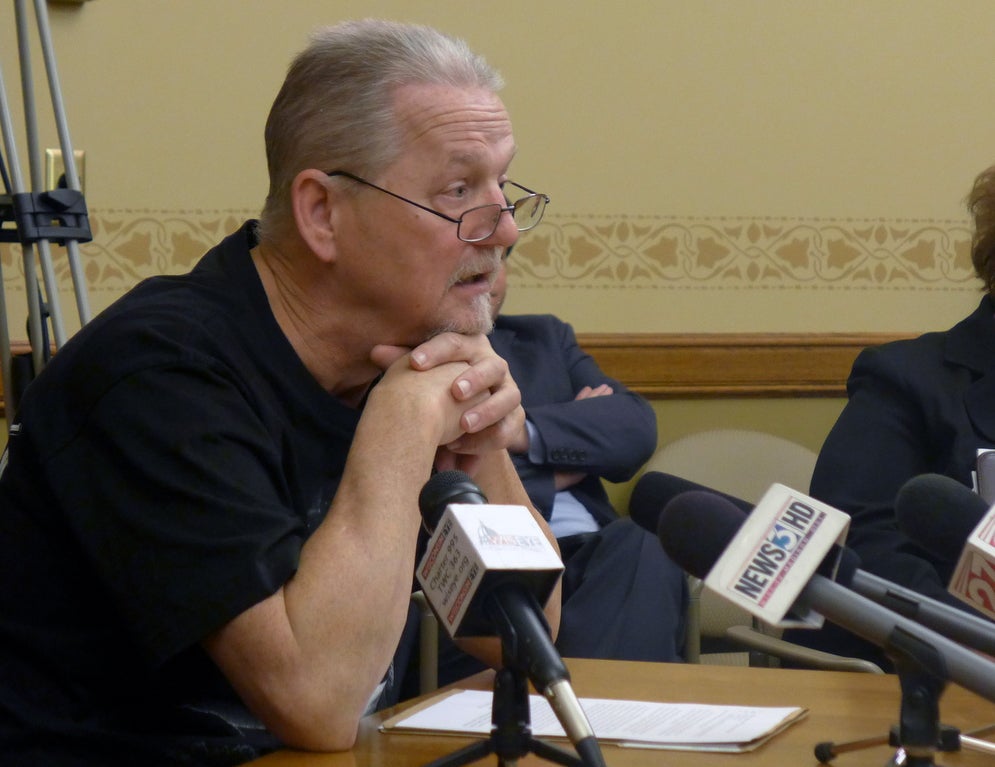People sent to prison for crimes they didn’t commit testified at the state Capitol Wednesday that they deserve fair compensation for the time and liberty they lost.
A bill that received hearings in two legislative committees would increase what the state can reimburse someone who was wrongfully imprisoned from the current limit of $25,000 to $1 million.
Fred Saecker served six years in prison on rape charges that were eventually overturned based on DNA evidence. He says he received a $25,000 payment from the Wisconsin Board of Claims in 2002, hardly enough to cover the seven years of income he lost.
Stay informed on the latest news
Sign up for WPR’s email newsletter.
“Having your life change dramatically and your freedom taken from you is difficult to say the least,” Saecker told state lawmakers.
Joseph Frey spent 19 years in prison on rape charges that were overturned on DNA evidence.
“We don’t ask for a handout, none of us do,” Frey said. “All we’re asking for is to be fairly compensated for what we have gone through.”
This is not the first time lawmakers have considered increasing compensation for people wrongfully convicted, but the plan has bipartisan support this session. Republican state Rep. Dale Kooyenga of Brookfield said the state’s current compensation system is “grossly inadequate.” Sun Prairie Democratic Rep. Gary Hebl said it’s hard to put a price on what people lose when they’re wrongfully imprisoned.
“Think of what happens to you if you were convicted of a crime you didn’t commit,” Hebl told fellow lawmakers. “The loss of your family, the loss of your reputation, the loss of a career.”
Frey testified that under current law, he would have received more support from the state if he’d stayed in prison than he did when he got out.
“The resources that were available to me were nil,” Frey said. “Because I was exonerated, the state had no more obligation to me.”
In addition to raising the overall compensation cap, the bill would also increase how much people who are wrongfully convicted can receive per year of confinement. Right now those annual awards are limited to $5,000. The bill would increase them to $50,000 and would be retroactive back to 1990.
People who were wrongfully imprisoned could also enroll for 10 years in the same health insurance plan offered to state employees.
Wisconsin Public Radio, © Copyright 2024, Board of Regents of the University of Wisconsin System and Wisconsin Educational Communications Board.






